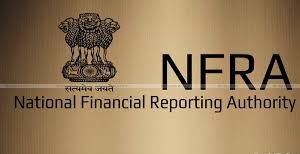A.R. Tiwari, J.@mdashThis revision petition presented u/s 115 of the CPC (for short, ''the Code'') is directed against the order dated 17.9.1993, passed by M.A.C.T., Mandsaur, in Claim Case No. 67 of 1991, thereby allowing the application moved for amendment under Order 6, Rule 17 of the Code.
2. I have heard Mr. Surjeet Singh, learned counsel for the petitioners, on the question of admission. The main ground on which this revision petition has been pressed is that the Tribunal had rejected the similar prayer on 27.8.1993 and later accepted the same by the impugned order.
3. Mr. Surjeet Singh, learned counsel, has placed reliance on V.B. Patil v. Y.L Patil AIR 1977 SC 392, in support of his contention that the Tribunal was wrong in holding that there was no question of res judicata in consideration of the renewed prayer.
4. True it is, that the principle of res judicata is attracted and applicable even in the course of the same lis at later stage. However, it is noticed from the order dated 27.8.1993 that the Tribunal had observed as under:
Hence the present proposed amendment application is hereby rejected and the claimant if wants may plead in alternative that the driver of the bus was negligent, so that the present pleadings may remain on record.
5. By the impugned order, the Tribunal has luculently observed that the claimant wanted to plead the case in the alternative.
6. The order is, thus, clearly not hit by the doctrine of res judicata because the allegations have been made in the alternative.
7. It is permissible under the law to be under umbrella of alternative pleas.
8. In
The court should be extremely liberal in granting prayer of amendment of pleading unless serious injustice or irreparable loss is caused to the other side. A revisional court also ought not to lightly interfere with a discretion exercised in allowing amendment in absence of cogent reasons or compelling circumstances.
9. The revisional jurisdiction is quite little and limited. The counsel was unable to point any jurisdictional error or material irregularity or illegality in exercise of jurisdiction vested in Tribunal. In
In our opinion, the High Court had no jurisdiction to interfere with the order of the first appellate court. It is not the conclusion of the High Court that the first appellate court had no jurisdiction to make the order that it made. The order of the first appellate court may be right or wrong, may be in accordance with the law or may not be in accordance with law but one thing is clear that it had jurisdiction to make that order. It is not the case that the first appellate court exercised its jurisdiction either illegally or with material irregularity. That being so the High Court could not have invoked its jurisdiction u/s 115 of the Civil Procedure Code.
10. The decision relied upon by the learned counsel is not applicable to the facts of the instant case and the order is not found to be subvertible.
11. The fate of the case pleaded in the alternative is too well-known. The applicant shall be free to take any appropriate objection by way of consequential amendment and can point out the defect or error as regards merits of the matter. The applicant shall also be free to raise objection about bar of limitation as regards the amended plea through consequential amendment and the Tribunal shall decide the question so taken in conformity with law.
12. This means there is no occasion of failure of justice or irreparable injury to the applicant. The applicant is fully protected as stated above.
13. In the circumstances, this revision petition fails and is dismissed summarily without notice to the other side.

